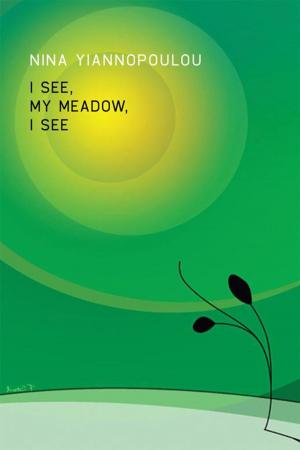| Author: | Steven Parris Ward | ISBN: | 9781479768349 |
| Publisher: | Xlibris UK | Publication: | December 28, 2012 |
| Imprint: | Xlibris UK | Language: | English |
| Author: | Steven Parris Ward |
| ISBN: | 9781479768349 |
| Publisher: | Xlibris UK |
| Publication: | December 28, 2012 |
| Imprint: | Xlibris UK |
| Language: | English |
Revealed in a dream, the angel Arcanus observes the sufferings of mankind on Earth, and offers with its tears, hymns of condemnation and consolation. These carefully wrought poems represent a complete cycle, focusing on the spiritual, religious, environmental and political issues that have sometimes troubled the people of this planet.
The angel Arcanusis the poetic representation of mankind's higher faculty- the faculty of the Imagination- the unity of love and reason, and that which is expressed in compassionate behaviour. The poet callsfor the awakening of this higher faculty, and for the human race to fulfil its realisation throughaltruistic behaviour towardsallliving creatures on this planet. The awakeningwill result in agreater unity and harmony with the cosmos as a whole, free from the limitations of the ego, and itsimpetus to dominate for its own sake; adesiretodominate, whichhas characterised the human species to date, causing suffering both to itself and other life forms.The faculty of Imagination, and the activity of compassion, represents the next stage in human evolution, and its awakening will enable mankind to develop beyond its currentmental and spiritual limitations, and the perils which plague it. The poems represent allegories addressing these issues and intimate the means by which we might continue to progress.
Revealed in a dream, the angel Arcanus observes the sufferings of mankind on Earth, and offers with its tears, hymns of condemnation and consolation. These carefully wrought poems represent a complete cycle, focusing on the spiritual, religious, environmental and political issues that have sometimes troubled the people of this planet.
The angel Arcanusis the poetic representation of mankind's higher faculty- the faculty of the Imagination- the unity of love and reason, and that which is expressed in compassionate behaviour. The poet callsfor the awakening of this higher faculty, and for the human race to fulfil its realisation throughaltruistic behaviour towardsallliving creatures on this planet. The awakeningwill result in agreater unity and harmony with the cosmos as a whole, free from the limitations of the ego, and itsimpetus to dominate for its own sake; adesiretodominate, whichhas characterised the human species to date, causing suffering both to itself and other life forms.The faculty of Imagination, and the activity of compassion, represents the next stage in human evolution, and its awakening will enable mankind to develop beyond its currentmental and spiritual limitations, and the perils which plague it. The poems represent allegories addressing these issues and intimate the means by which we might continue to progress.















